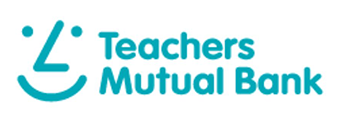What is a variable rate car loan?
Providing an extra layer of flexibility compared to their fixed-rate counterparts, variable rate car loans are a type of personal loan bearing an interest rate that moves or 'varies' as changes to the market occur. These changes include two key factors, such as fluctuations in the cash rate as set by the Reserve Bank of Australia (RBA) or changes in funding costs associated with providing loans.
This means getting a variable rate car loan is generally the better option if you're anticipating RBA cash rate cuts or broader reductions in lending rates in the short-to-medium term. You can take advantage of potential savings as your monthly repayment drops in line with market trends.
For this reason, you must be comfortable with some risk. With variable loans, rates can go up, not just down. It's vital that you have a financial buffer and can absorb potential rate increases without it straining your budget.
There are two types of variable rate car loans in the market: secured and unsecured loans.
With a secured car loan, a bank or lender requires an asset - in this case, the car - to be utilised as security against the loan. With the car as collateral, failing to meet your repayments would give the lender the right to sell or repossess the asset to recover its funds.
Because of this, secured car loans often have lower interest rates, as the borrower is deemed to be less of a risk to the lender.
Unsecured car loans, as the name suggests, do not require security, meaning the lender has no automatic claim to your assets in the event of non-payment. These loans tend to pose a greater risk to the lender, given that there is no collateral backing the debt. As such, interest rates on unsecured loans tend to be higher than their secured counterpart. And if you default on the loan, your lender may aim to recoup their losses through other means - such as through the court system.
See Also: Bank vs Dealership Car Loans
How to compare variable rate car loans
To ensure you are getting the best possible deal on a variable rate car loan, there are a number of factors to consider. These include:
1. Advertised interest rate
The first and most obvious factor when comparing variable rate car loans is the interest rate. The higher the rate, the more interest you will pay over the life of your car loan, and the higher your base repayments will be. While the rate may fluctuate, it remains a key indicator of the competitiveness of the product.
Quick tip: Be wary of any car financing product displaying repayment figures only; they are next to meaningless without seeing the interest rate and loan term.
2. Comparison rate
Alongside the advertised rate, banks and lenders are obligated to show the comparison rate of the car loan. This provides a greater indication of the true cost of the loan by bundling the interest rate plus various fees into a single percentage figure.
For example, a variable rate car loan may have an advertised interest rate of 6.99% p.a. with a comparison rate of 8.99% p.a. This indicates there are two percentage points' worth per annum of fees to consider.
Quick tip: Always compare the comparison rate, not just the advertised interest rate, as it reflects the real cost of the loan.
3. Fees and costs
While some variable rate car loans may present enticing facades with low interest and comparison rates, looks can sometimes be deceiving. Banks and lenders may charge an array of fees or tack on associated costs to your loan, so it's important to look out for these when comparing your options.
Keep an eye out for fees such as loan establishment fees, late fees, or any ongoing charges (monthly or annually).
4. Features
Variable rate car loan features typically include the ability to make extra repayments with a redraw facility to help you pay off your loan sooner and save you interest.
However, not all banks and lenders will offer the same features, making it important to do your research and compare products to help you make an informed decision. Further, these features might not be necessarily free.
5. Loan term
When it comes to how long you can have a variable rate car loan for, there is no right or wrong answer - it ultimately comes down to your financial position and ability to make repayments on an agreed basis. Generally, banks and lenders offer car loan terms ranging from 1 to 10 years.
The most popular terms tend to be from 3 to 5 years, as they offer many motorists a budget-friendly level of regular repayments and a palatable amount of total interest paid.
Here's how different loan terms affect monthly repayment and total interest paid on a $30,000 variable rate car loan at an assumed interest rate of 7.49% p.a. (comparison rate):
|
Loan term |
Monthly repayment |
Total repayments |
Total interest paid |
|
1 year |
$2,604 |
$31,252 |
$1,252 |
|
3 years |
$932 |
$33,553 |
$3,553 |
|
7 years |
$457 |
$38,410 |
$8,410 |
Typically, the longer your loan period, the less you will be required to pay each week, fortnight or month (depending on your repayment frequency). Yet this means you will pay more in interest over the life of your loan.
Shorter terms have higher monthly repayments, but significantly lower interest paid overall.
Quick tip: It's important to choose a loan term with a repayment schedule that isn't going to put you in a tough position financially. You never know, you may be able to repay your loan sooner down the track anyway.
See Also: Car Loan Calculator
Benefits and drawbacks of a variable rate car loan
Benefits
-
Potential for lower interest rates - If the RBA lowers the cash rate or lenders adjust funding costs down, your interest rate and repayments could decrease.
-
Repayment flexibility - Many variable loans allow extra repayments without penalty, helping borrowers reduce the loan term and interest paid. Customers may also choose the schedule of repayment frequency that works best for them.
-
Redraw facility - Some lenders offer a redraw facility, letting you access any extra repayments if needed. It may come with fees, though.
-
Early payout - You're less likely to face break costs or early repayment penalties with a variable rate car loan, thereby enabling you to clear your debt sooner.
Drawbacks
-
Interest rate uncertainty - Your rate can increase at any time due to market changes or lender decisions. If the interest rate rises significantly, you may end up paying more in interest charges over the life of the loan than you would have with a fixed-rate loan.
Take note: In the early days of a loan, a much higher proportion of your repayment goes towards interest, so a rising interest rate could be detrimental to your equity.
-
Harder to budget - Fluctuating repayments due to interest rate changes can make it difficult to plan your finances or stick to a fixed budget, especially over the long term.
-
Additional costs - Not all add-on features that come with a variable rate car loan are free. Redrawing or making extra repayments may come with fees or conditions attached (amount cap, for instance).
Quick tip: Always read the terms and conditions of the loan, as different loans may have different policies towards things like extra repayments or early exits.



















